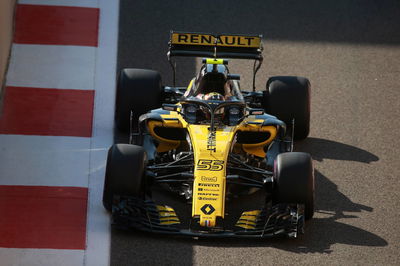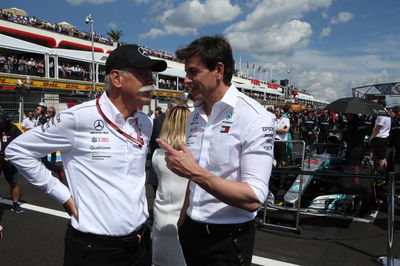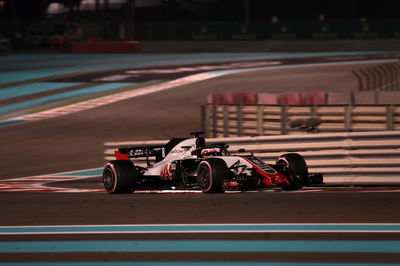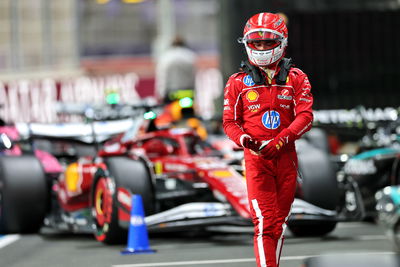The end of an automotive era as we know it?
The automotive industry has been undergoing significant changes since the turn of the millennium. We have seen the rise of the autonomous vehicle, encountered major disruptors like ride-sharing apps and the entire Tesla brand, and experienced a growing shift away from the internal combustion engine and towards a cleaner-powered future.
While these have been - and continue to be - gradual changes, over the course of the past few months, we have also seen a generational shift among automotive executives, not least those affiliated with Formula One.

The automotive industry has been undergoing significant changes since the turn of the millennium. We have seen the rise of the autonomous vehicle, encountered major disruptors like ride-sharing apps and the entire Tesla brand, and experienced a growing shift away from the internal combustion engine and towards a cleaner-powered future.
While these have been - and continue to be - gradual changes, over the course of the past few months, we have also seen a generational shift among automotive executives, not least those affiliated with Formula One.
This week’s big news was the arrest in Japan of Carlos Ghosn, the Renault-Nissan-Mitsubishi executive accused by the Japanese authorities of being guilty of financial misconduct. The situation with Ghosn is both ongoing and highly complex . There are reports that it was a coup designed to avoid a Nissan-Renault merger, and others suggesting the entire scenario was an internal coup in France. There are also reports that the entire situation is entirely as it seems. The truth will emerge in time.
But before Ghosn’s executive career was brought to a dramatic end, there were significant changes at the top of F1’s other key manufacturers. In July, the sudden death of Sergio Marchionne led to a change of leadership at Fiat Chrysler Automobiles and on the Ferrari board, while in September it was announced that Dieter Zetsche would be stepping down from his role as CEO of Daimler, parent to the Mercedes-Benz brand.
Zetsche’s retirement comes after 12 years at the helm, and his successor has been named as Ola Källenius, one of several new - and young - faces on the Daimler board. Källenius will step up to his new role in May, following two unimpressive quarters for the brand, and his remit is said to be to help guide Daimler and Mercedes into an electric-led future in which the German marque remains a market leader.
Replacing Ghosn is rather more complex, given the labyrinthine shareholdings that link the Renault, Nissan, and Mitsubishi brands. Nissan is expected to name their new chairman shortly, with reports of a shareholder meeting having been convened in Japan. In France, deputy CEO and Chief Operating Officer Thierry Bollore has taken over Ghosn’s responsibilities on an interim basis.

What these executive changes might come to mean for Formula One in the long term has yet to be seen. Speaking in the team principals’ press conference in Abu Dhabi on Friday, Renault team principal Cyril Abiteboul was cautiously optimistic about the impact of the change of leadership on the Renault F1 programme, but acknowledged that a risk remained that the board’s spending priorities would come to change.
“We have no information that there will be any impact,” he said. “We don’t see any reason why there would be more impact on this programme than on anything else. For the time being: continuity, focus on what we have to do, which is complete the championship in the best possible way this weekend and then focus on the second phase of our plan in Formula One, and this is the success that will matter, the success or lack of success, and this is where I need to deliver.”
Pressed on the issue later in the press conference, Abiteboul said: “I think my message is simply that there is a continuity plan for all the operations of the Renault Group as well as Nissan and Mitsubishi. Formula One is part of this operation. It’s an object and an activity which is well known, very visible and receiving lots of exposure with clear expectations of return on investment and contribution to the business.
“I think that the reason why we joined Formula One in the way that we joined Formula One back in late 2015 are still here today: for exposure, for technology development. There is no reason why those factors are suddenly going away in case of any development, for which I don’t want to speculate at this point in time.
“So if Formula One is still a good value proposition in the past, it has no reason not to be also in the future. “
The loss of Zetsche from Mercedes could also eventually lead to the Silver Arrows’ withdrawal from the sport. The exuberantly mustachioed German is a passionate racer, and could often be seen celebrating Mercedes’ successes in Formula One and DTM on the TV broadcasts of each race.
Ola Källenius isn’t as a passionate a petrolhead -- his professional interests are far more closely aligned with electric vehicles and Formula E than Formula One. But Källenius sits on the board of the F1 team, and previously worked for the engine unit that preceded the current Mercedes-Benz High Performance Powertrains.

Speaking in Singapore in September, Toto Wolff was confident of Källenius’s ongoing support for the F1 project.
“Dieter and Ola Källenius have been strong supporters of Formula One all these years,” he said. “Ola has been on the board of the team since a long time, has been running Mercedes High Performance Engines before, and was the managing director of AMG. So, we have a very good relationship with the two of them and Dieter is not leaving, he’s just taking a cool-off period and coming back into the supervisory board and Ola, obviously, as the new CEO provides stability for our Formula One project.”
If Mercedes elect to leave Formula One, that is likely to happen when the wider Daimler board decide that they have achieved all of the possible return of investment on their F1 project, be that through technological development for their road cars, publicity gained through on-track success, or any other metric.
As for Ferrari, the loss of Marchionne has actually improved the stability of their F1 programme -- the executive’s threats to withdraw from the sport if the post-2020 future did not appeal have not been repeated by his successors, and the Ferrari quit threat is very much on the backburner for now.
It may have occurred in a matter of months, but the ramifications of a considerable sea change for F1’s manufacturers could have a major impact on the sport for years to come.











